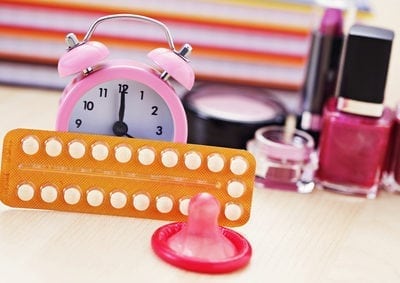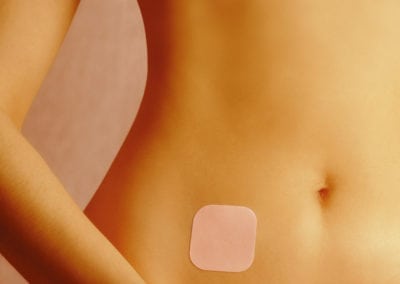Birth Control 101 is a multi-part series covering everything you need to know about birth control in the United States. It has all the details you need to make the best decision for your body, like how each method works, the pros and cons, effectiveness, cost and where to get them. After we’re done, you’ll basically be an expert, and you’ll definitely be able to make an informed decision about how to stay safe when you’re having sex.
This segment covers everything you need to know about the Birth Control Shot.
Check out our Birth Control 101 section for details on every birth control method, and Birth Control Basics for a quick and dirty overview.
The Shot
What is it?
Also called Depo-Provera (its brand name), the shot is a three month, long-acting reversible contraception (LARC). It is administered by a health care professional once every three months.
How does it work?
The shot contains the hormone progestin, which prevents pregnancy the same way as other hormonal birth control methods. Progestin thickens the cervical mucus and can also prevent ovulation. One shot works for 90 days or three months. After three months, you return to your doctor to get another shot. If you can’t get to your doctor at exactly the three-month mark, there is still a two-week window that the shot will be effective after three months.
Effectiveness
Depo-Provera is 99% effective.
Pros
- Most users experience fewer and lighter periods or no periods at all. According to Planned Parenthood, one-half of users stop having their periods completely after one year of the shot. As with other hormonal methods, women experience fewer PMS symptoms.
- The shot is extremely effective, easy to remember, and essentially worry-free.
- This method is estrogen-free, so is not associated with estrogen-related side effects. It’s also safe to use while breast-feeding.
Cons
- Because the shot administers three months’ worth of progestin at once, some users may experience stronger side effects or allergic reactions. The most common side effect is spotting and irregular bleeding, especially during the first six months to a year of use. Other side effects associated with Depo-Provera are acne, weight gain, and depression.
- For some users, getting a period each month may be a comfort. It lets us know we’re definitely not pregnant. The shot can lead to very irregular periods or no period at all, and it may take many months before your cycle returns to normal after the shot.
- The shot may cause loss of bone density. Users should get regular exercise and consider taking extra calcium to prevent osteoporosis.
- Returning to fertility after using Depo-Provera can take up to 10 months.
Cost
The cost of Depo-Provera is $35-$75 per injection. There could be additional costs per visit depending on your medical insurance or doctor.
Where to Get It
Visit your doctor, gynecologist, or a health or family planning clinic (like Planned Parenthood). Most doctors give the first shot while you’re on your period or within five days of the start of your period.
Don’t stop there… learn more about the other methods so you can find the perfect fit! Check out these articles in our Birth Control 101 series.
Birth Control 101: The Basics of Birth Control
Birth Control 101: The Pill
Birth Control 101: The Patch
Birth Control 101: The Ring
Birth Control 101: The Shot
Birth Control 101: The Implant
Birth Control 101: Hormonal and Copper IUDs
Birth Control 101: Male Condoms
Birth Control 101: Cervical Cap
Birth Control 101: Diaphragm
Birth Control 101: The Sponge
Birth Control 101: Spermicide
Birth Control 101: Pull Out Method




Super helpful! I been looking for birth controls but don’t know where to start! Are there any that won’t cause major mood swings?
Most hormonal methods (the pill, patch, shot, implant) have a risk of mood swings and other negative effects. The only non-hormonal method is the Copper IUD and barrier methods like condoms – which we’ll be covering in the coming weeks! 🙂
The Copper IUD link doesn’t work :((
It’ll be up in a week or two! 🙂